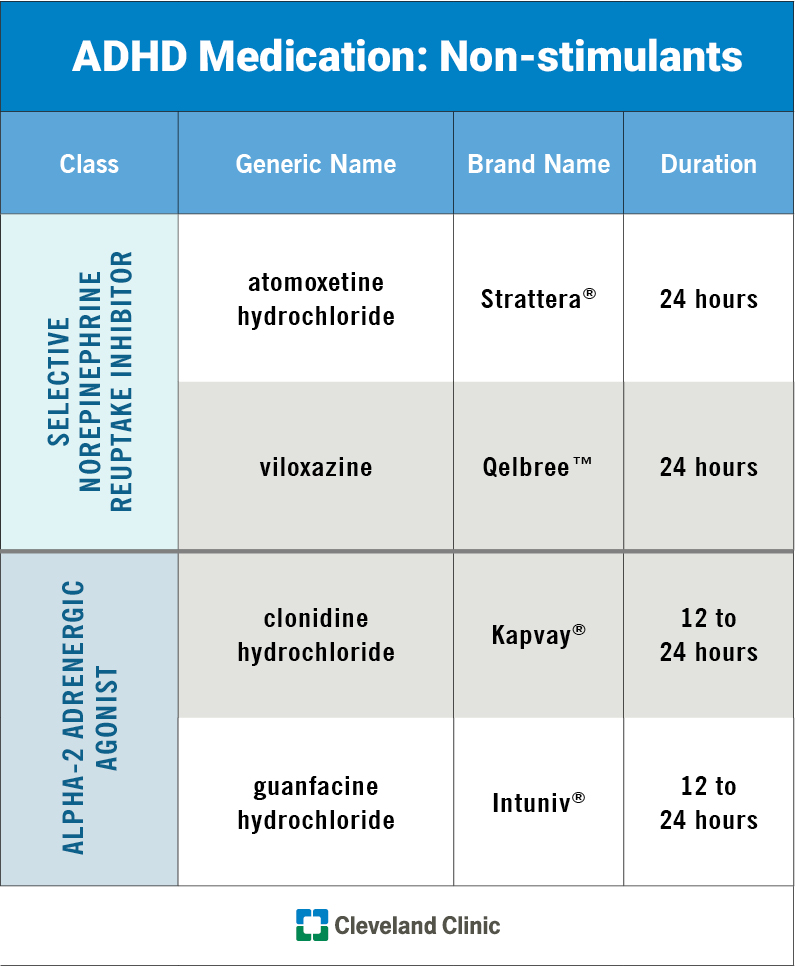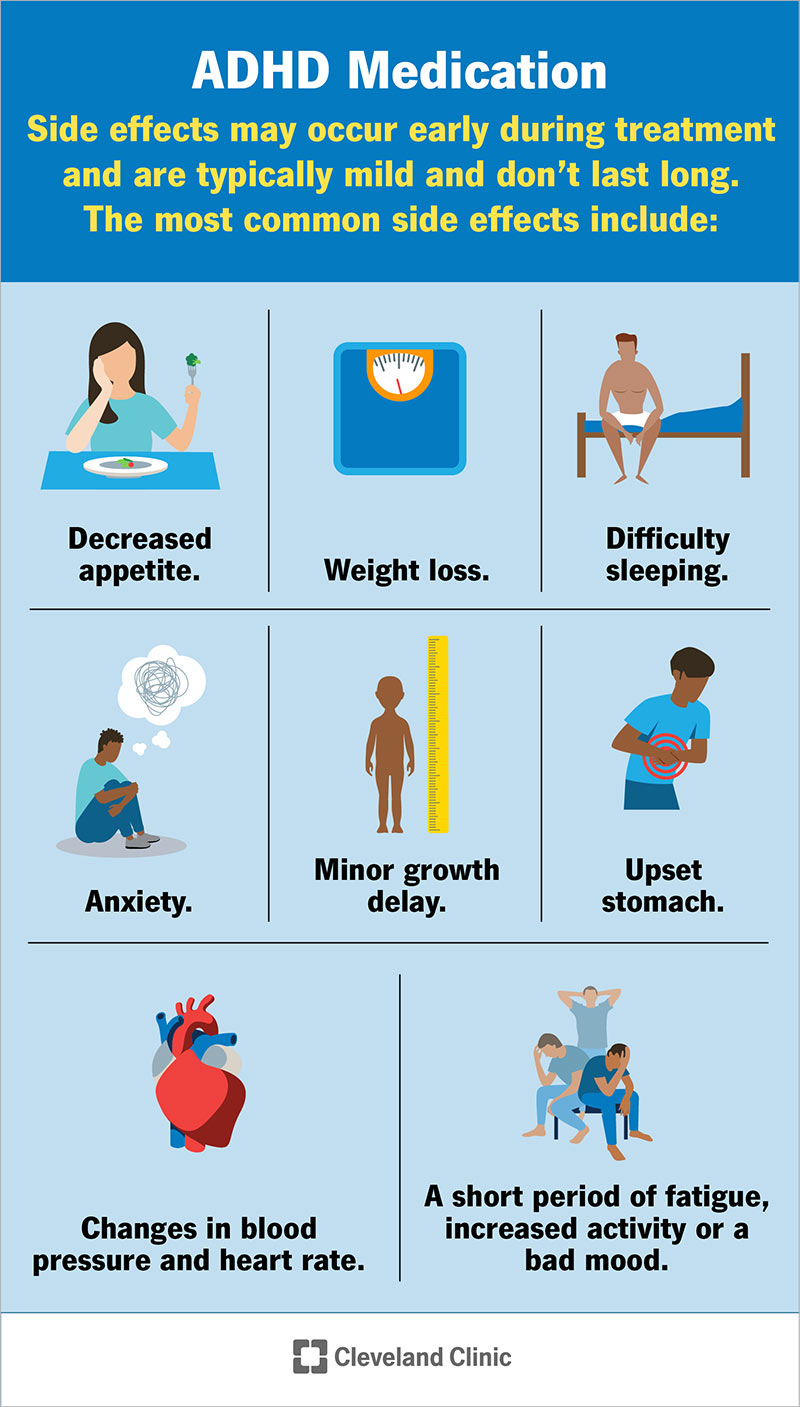Exploring Efficient ADHD Therapy Options for All Ages
The complexities of Interest Shortage Attention Deficit Disorder Disorder (ADHD) existing unique challenges throughout different age groups, demanding a comprehensive exploration of effective therapy choices. A combination of behavior modifications, pharmacological interventions, and way of life modifications has revealed promise in resolving the diverse demands of people with ADHD. Nevertheless, the efficiency of these methods can differ considerably based on individual circumstances, raising essential questions regarding customized strategies. As we analyze the spectrum of treatment modalities offered, it comes to be important to consider not only their instant effects yet also their long-lasting effects for people and family members.
Recognizing ADHD and Its Influence
Attention-Deficit/Hyperactivity Condition (ADHD) is a neurodevelopmental condition identified by persistent patterns of negligence, attention deficit disorder, and impulsivity that can dramatically influence numerous facets of a person's life. It usually manifests in childhood, although signs and symptoms can continue into the adult years. The core signs and symptoms of ADHD can interrupt educational efficiency, impede social interactions, and make complex work-related ventures.
People with ADHD commonly have problem with maintaining concentrate on tasks, arranging activities, and adhering to through on instructions, which can lead to academic underachievement (Depression Treatment). In social contexts, impulsivity may cause problems in creating and sustaining relationships, as people may disrupt conversations or make rash decisions without taking into consideration repercussions
Furthermore, ADHD can co-occur with other mental health and wellness problems, such as stress and anxiety and clinical depression, further complicating medical diagnosis and therapy. The variability in sign discussion suggests that ADHD can affect individuals in different ways, necessitating a tailored approach to administration. Comprehending ADHD's multifaceted effect is crucial for developing efficient approaches that sustain people in browsing day-to-day challenges and accomplishing their capacity. Comprehensive understanding of ADHD's nature and effects prepares for exploring suitable treatment alternatives tailored per person's demands.
Behavioral Therapies for ADHD
Various behavioral therapies have been developed to successfully address the challenges connected with ADHD, concentrating on modifying specific behaviors and cultivating essential abilities. Among one of the most acknowledged approaches are cognitive-behavioral treatment (CBT), moms and dad training, and social skills training.
CBT aids individuals identify and transform adverse thought patterns and behaviors, advertising an extra favorable outlook and boosted self-regulation. This treatment commonly consists of useful approaches for taking care of impulsivity and improving company. Moms and dad training programs encourage caregivers by furnishing them with strategies to enhance positive actions and set constant boundaries, which can be particularly valuable for children with ADHD.
Social skills training is another crucial element, teaching people with ADHD how to interact efficiently with peers - Depression Treatment. This strategy commonly includes role-playing and responses to improve communication, cooperation, and problem resolution abilities
Integrating these behavior modifications right into a thorough treatment plan can considerably boost functioning and lifestyle for individuals with ADHD. Ultimately, the performance of these therapies relies on tailored approaches that think about the unique demands of each individual, therefore promoting resilience and versatility in every day life.
Medication Options Available
For numerous people with ADHD, medicine can play a substantial function in taking care of symptoms and enhancing general performance. The 2 key categories of medications prescribed for ADHD are stimulants and non-stimulants.
Energizers, such as methylphenidate and amphetamine-based life counseling medicines, are one of the most generally used treatments. These drugs function by increasing the levels of neurotransmitters, particularly dopamine and norepinephrine, in the brain, which helps improve attention and decrease impulsivity and hyperactivity. They typically produce fast results, making them a favored choice for numerous clients.

It is essential for doctor to conduct a thorough evaluation to establish one of the most appropriate medication based on individual needs, case history, and prospective side impacts. Routine follow-up and surveillance are additionally critical to ensure the effectiveness of the selected therapy and to make any kind of essential changes.
Way Of Living Adjustments to Take Into Consideration
Taking care of ADHD successfully extends past medicine, as way of living modifications can dramatically boost total health and symptom control. Incorporating organized regimens is vital; constant routines help individuals with ADHD manage their time successfully and minimize feelings of bewilder.
Normal physical activity is another crucial element. Workout not only helps to boost focus yet likewise enhances mood and lowers stress levels. Activities such as yoga exercise or team sports can be specifically beneficial, advertising both fitness and social interaction.
Nourishment likewise plays a critical role. Depression Treatment. A well balanced diet abundant in omega-3 fatty acids, entire grains, and lean proteins can add to improved focus and cognitive feature. Limiting sugar and refined foods is a good idea, as these can intensify attention deficit disorder and impulsivity
Sleep health is crucial for managing ADHD signs. Establishing a regular sleep routine and creating a relaxing environment can enhance rest top quality, bring about far better interest and psychological guideline.
Different and Holistic Techniques
Different and all natural strategies to ADHD therapy use a varied variety of options that match standard techniques. These strategies commonly concentrate on way of living modifications, dietary interventions, and restorative methods that intend to boost general health while dealing with ADHD signs and symptoms.

Mindfulness and behavior modifications are also getting traction as holistic treatments. Practices such as yoga exercise, reflection, and cognitive-behavioral therapy can grow self-regulation and enhance attention. These approaches support psychological durability, which is specifically valuable for individuals with ADHD.
Organic supplements, such as ginkgo biloba and ginseng, are often checked out; nevertheless, it is critical to consult healthcare experts before integrating these into treatment plans. While choice and holistic techniques can give beneficial assistance, they need to preferably be made use of together with evidence-based therapies to accomplish ideal results for handling ADHD across all ages.
Conclusion
In summary, reliable ADHD therapy demands a comprehensive approach that includes behavior modifications, medicine, way of life modifications, and holistic methods. Customized treatments can substantially boost individuals' functioning and quality of life, while ideal drug makes certain optimum sign monitoring. Moreover, adopting organized regimens, participating in normal physical task, and practicing mindfulness can improve psychological guideline and attention. This multifaceted approach highlights the value of individualized care in addressing the varied needs of people with ADHD across every age groups.